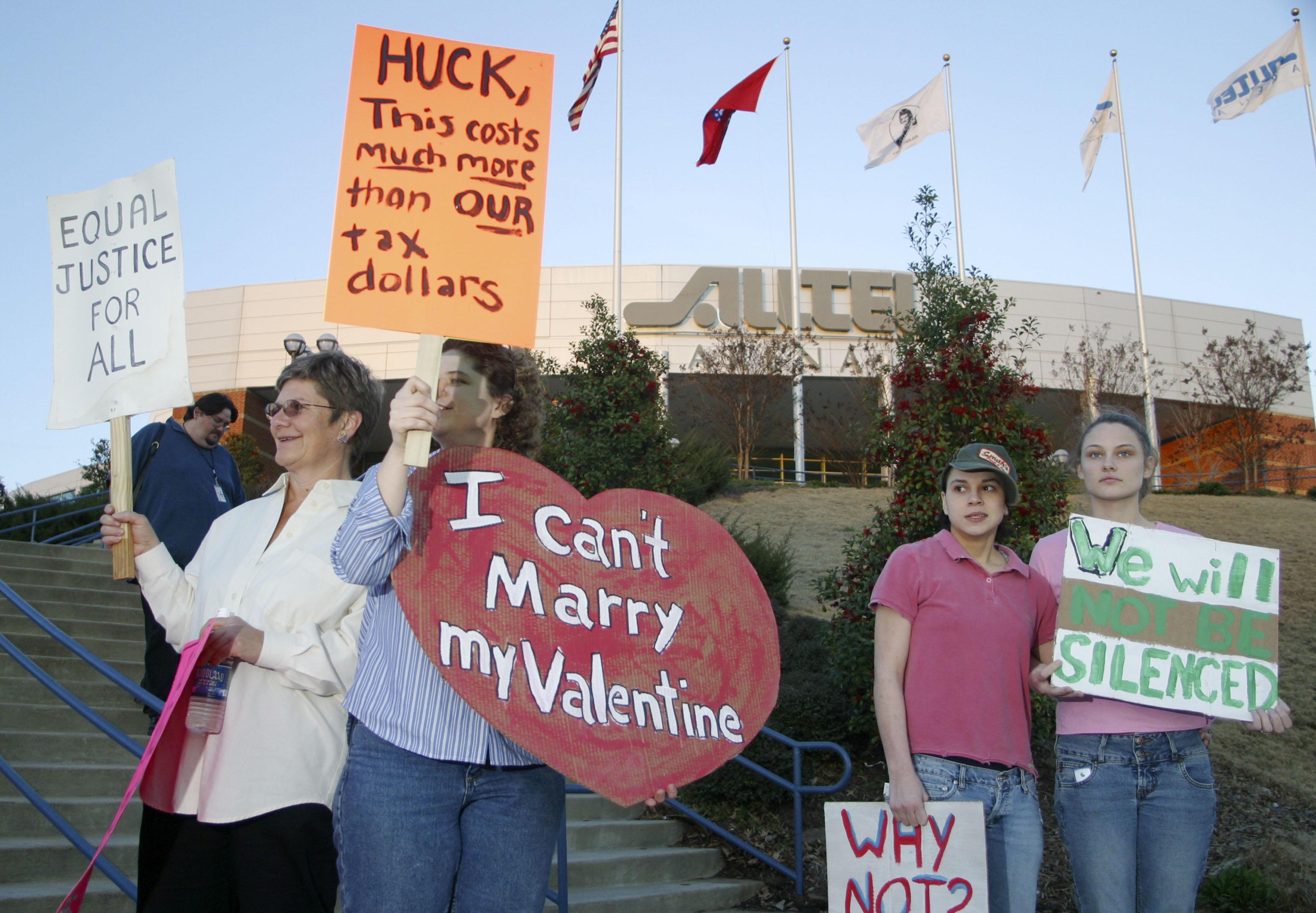In the national fight for gay rights, all signs indicate that the next battleground will be —and, for reasons of fairness, really must be—the South. As the New York Times reported last week, leading gay advocacy organizations like the Human Rights Campaign and major movement funders are redirecting their efforts and money at states like Georgia, Mississippi, and Arkansas, “where Republicans dominate elected office and traditional cultural views on homosexuality still prevail.” On the thinking behind the shift, the Times writes:
The new strategy reflects the growing worry within the movement that recent legal and political successes have formed two quickly diverging worlds for lesbian, gay, bisexual or transgender Americans: one centered on the coasts and major cities, and another stretching across the South and up through the Rocky Mountains, in states where gays enjoy virtually no legal protections against discrimination.
This influx of support and cash—noted philanthropist Tim Gill is pumping $25 million into the region—is clearly good news for the millions of LGBTQ people who struggle to make a life outside of progressive bastions, especially in light of the “religious freedom” (aka gay segregation) bills currently enjoying popularity in state legislatures. But will the same tactics that have fostered success in more liberal areas work below the Mason-Dixon?
Locals seem to favor a “gentler,” to use the word of one activist, approach that focuses on community ties and golden-rule ethics more than Here-Queer pride parade visibility politics. One Mississippi lesbian told ABC News that “a quiet campaign relying on interpersonal relationships would likely work better than in-your-face demonstrations like those employed during the civil rights era of the ‘60s across the South.” Similarly, a Southern chef who is protesting Mississippi’s recent adoption of a gay segregation law by throwing a “Big Gay” dinner party during an upcoming annual celebration of the state in New York City called his tactic, “polite Southern activism with food, which is a magic way to bring people together.” According to the organizers, Mississippi’s governor has not yet accepted an invitation to the event.
While I’m sure that the activism strategies that worked in New York or Seattle may not work as well in Huntsville, Alabama, or Jackson, Mississippi, I worry that this brand of “polite Southern activism” risks making the struggle more drawn out than it needs to be. As a Southerner myself, I understand the art and appeal of subtle Southern persuasion, and I can totally see how a sensitivity to that way of doing things is useful. But so much of the problem with the South has to do with limited, immediate thinking and a lack of recognition—with the sense that “gay” is a thing that exists elsewhere and imposes itself from outside, something worth ignoring or fighting, depending on your constitution. Or if gay community members are known, they are praised for being discreet and unobtrusive; after all, if being gay is a choice one makes in the bedroom (an extremely common, libertarian sort of feeling), it is just plain rude to talk about it in public. But that’s exactly what needs to happen to make people understand that being gay is neither a “choice” nor something that can or should be kept private.
As much as I love the idiosyncrasies of the South, the tendency to avoid discomfort and confrontation in the spirit of “being polite” and “minding your own business” can be frustrating, if not dangerous. Sometimes, difficult conversations—on subjects like race and immigration as well as gay rights—need to be had loudly and openly and painfully, without regard for decorum, in order for any progress to be made. As the HRC and other activists craft their Southern strategies, I hope they will balance respect for the region’s unique and often beautiful character with a little of the tough love it desperately needs.
